International Management & Leadership

Prof. (FH) Dr. Tamás Csermely, MSc

Zvia Dem

Dr. Stefan Bauer

Greg M. Bennett

Dominik Berger, MA MSc (WU) BSc (WU)

Dr. Ufuk Bicici, MSc

Prof. (FH) Mag. Julius Dem, MBA

Univ.- Doz. Mag. Dr. Claus Ebster, MSc, MBA

Thomas Faistauer

Andrea Gaal, MA, PhD

Prof. (FH) Dr. Armin J. Kammel, LL.M. (London), MBA (CLU) Ehrenprofessor (Donau-Universität Krems)

Florian Klingenschmid, BA., MA.

Prof. (FH) Dr. Karl Knezourek, MBA

Prof. (FH) Ing. Mag. Robert Kotal CFP ®EFA®

Gerardo Manzano, BSc, MSc

Jeannine Madeleine Oelschuster, BA MA MBA

Dr. Sandra Pauser, MA

Prof. (FH) Dr. Hanno Pöschl, MSc, MBA

Dr. Alexander Rabas, MSc

Prof. (FH) Dr. Christian Reiner

Yaroslav Shymanskyi, BA., MA

Gilbert Silvius, PhD, MSc, MBA

Hon. Prof. (FH) Dr. Dagmar Silvius-Zuchi

Prof. (FH) Dr. Mag. Christin Vallinkoski, MA

Gordon Van Der Veen, MA (MGT) PGDBA

MMag. Michael Walzek

Lorenz W. Wieser, MSc

Andrew Wood, BSc (Econ), ACA
Prof. (FH) Dr. Tamás Csermely, MSc
Tamás Csermely has been the Director of Studies of the two on-campus Master programs, the online MBA and the online Executive MBA at the Lauder Business School as well as a Board Member of the Austrian Universities of Applied Sciences since 2018. He used to work as the Head of Procurement at Quantoras, an Austrian technology-based consulting company, where he was responsible for managing the purchasing team, leading dozens of large-scale supply chain projects. His team made a name for itself on saving 14.2% on average in several branches (base chemicals, metals, automotive, textile, pharmaceutical, foundry, construction, food and beverages, etc.) for dozens of mid-sized companies and international conglomerates – which, in several cases, were world market leaders in their segments. Tamás’ main area of expertise is optimizing the strategy as well as the operations/supply chain of businesses and thereby converting his efficiency-oriented mindset to measurable results. He also worked in the Emerging Markets/Quantitative Research/Asset Allocation division of Raiffeisen Bank International and as a research and teaching associate at the Vienna University of Economics and Business (WU Vienna) during his early career.
He holds a Ph.D. in operations management and logistics (University of Vienna), an M.Sc. in management and consulting (University of Pécs) and a Professorial bestowal (Lauder Business School). In addition, he attended Indiana University Bloomington – Kelley School of Business with a one-year full scholarship. He published several articles in scientific and professional journals and his research on managerial decisions in operations- and behavioral economics-related settings has also been featured in Die Presse. Tamás firmly believes in applied, case study- and experience-based teaching (Behavioral Economics, Supply Chain Management, Operations Management, Managerial Economics, Business Process Management, Management Consulting), which is his primary passion.
Tamás used to be an affiliate of the Microeconomics of Competitiveness Network of the Harvard Business School between 2017 and 2023. Moreover, he has presented his research at several renowned conferences, held talks at the Universities of Oxford, Toronto, Cologne, Cornell, Shanghai and taught MSc and MBA level courses at top universities (Bar-Ilan University, WU Vienna, etc.). He also serves as a peer reviewer for the Journal of Economic Psychology (JEP), the Journal of Economic Behavior and Organization (JEBO), the International Journal of Production Economics (IJPE), Applied Economics Letters (AEL), the Journal of Risk, the Journal of Business Economics (JBE) and the Journal of Risk and Uncertainty (JRU). He proved his stress resistance by answering 10 questions correctly in the “Who Wants To Be a Millionaire” TV show.
Email:tamas.csermely[at]lbs.ac.at
Zvia Dem
Responsibilities:
- Information management of all academic issues
- Management and handling of all semester schedules
- Organisation and supervision of retake and commission exams
Phone:+43 1 369 18 18 764
Email:zvia.dem[at]lbs.ac.at
Dr. Stefan Bauer
Stefan is an innovation enthusiast, education designer, and a passionate researcher. He is a university lecturer at several universities among others Lauder Business School, University of Applied Sciences Vienna and University Reykjavik. His interests include digital innovation, user experience, management of information security, employee experience, business data analysis, and artificial intelligence. Prior to joining Talent Garden as Innovation School Director, Stefan was driving the digital transformation of traditional banking business by developing a digital banking platform at BAWAG P.S.K. In 2016, he received a doctoral degree in Information Systems from the Vienna University of Economics and Business. He is a certified Project Manager and was the elected chairman of the student agency of doctoral students. Moreover, he was awarded the ERSTE Bank Prize for Research in CEE 2012. His scientific work has been published in top academic journals, including Data Base for Advances in Information Systems, and Computers & Security.
Email:stefan.bauer[at]lbs.ac.at
Greg M. Bennett
Greg M. Bennett is an internationally recognized entrepreneur and visionary marketing executive with over three decades of experience shaping global brand narratives and redefining business paradigms. He has led some of the most iconic advertising and branded entertainment campaigns, earning accolades such as the Globes, Addys, Emmys, and Diamonds. Other accolades include the Association of Marketing Agencies Worldwide’s “International Creative Marketing Executive of the Year.” In May 2025 he received the National Entrepreneurs Association’s 2025 Lifetime Achievement Award.
Bennett began his entrepreneurial journey in 1990 by founding Luna Bacardi Group (LBG), a Los Angeles-based marketing agency that grew to become one of the world’s largest privately held integrated marketing firms before being acquired in 1999. In 2000, he launched O! Branded Entertainment, a Santa Monica-based agency credited with pioneering the now multibillion-dollar branded entertainment industry. His work has supported global powerhouses such as Disney, CBS, Apple, Nike, Unilever, and BMW.
He later joined CBS Television Distribution, where he launched the network’s Branded Entertainment & Digital division and produced award-winning branded content for television programs including Oprah!, Entertainment Tonight, and The Doctors. In 2010, he founded Iconoclast Brand Marketing & Entertainment, a strategic consultancy known for its proprietary Neural-Narrative™ methodology and its focus on human-centric brand transformation.
In 2019, Bennett extended his entrepreneurial impact to the nonprofit sector with the launch of the Genius stage, a global platform dedicated to advancing innovation and collaboration among academic thought leaders and entrepreneurs to address worldwide challenges.
A bestselling author of I Can Make Caffeine Nervous: Lessons from an Entrepreneur, Bennett offers insights from a career that has influenced billion-dollar markets and revolutionized how brands connect with audiences. He is also currently executive producing the documentary film Empty Locker, now in early development.
Greg brings to the classroom a global perspective on entrepreneurship, creativity, and innovation—drawing from decades of high-level industry leadership and a lifelong passion for transforming ideas into world-changing initiatives.
Dominik Berger, MA MSc (WU) BSc (WU)
Dominik brings over 14 years of experience in growth & digital marketing. His passion lies in building sustainable, growth-oriented marketing strategies that significantly enhance brand visibility and performance. His expertise spans various marketing disciplines, including conversion rate optimization, performance marketing, social media and content marketing, SEO, marketing automation, and email marketing.
As the founder of the digital marketing agency Attention Fox and an e-commerce venture, Dominik combines an entrepreneurial spirit with a deep understanding of the digital landscape. He is also a dedicated educator, sharing his knowledge and practical insights with students as a lecturer at several universities.
Email:dominik.berger[at]lbs.ac.at
Dr. Ufuk Bicici, MSc
Ufuk Bicici studied Computer Engineering at Marmara University, Istanbul, and completed his master’s and PhD in the Computer Engineering Department at Bogazici University, Istanbul. Alongside his academic pursuits, he has worked as a Machine Learning Engineer, Researcher, and Data Scientist at various companies for over 12 years. He is currently a Data Scientist at Josephinum Research, Wieselburg. His research focuses on efficient deep learning, image processing, and computer vision.
Email:ufuk.bicici[at]lbs.ac.at
Prof. (FH) Mag. Julius Dem, MBA
Julius Dem is the Director of Studies for the IBA Program at LBS. He has extensive experience in many different leadership positions, including having been the project manager for the 13th European Maccabi Games in Vienna and having co-founded W&D Consulting Ltd. Specializing in Project Management, he has been teaching at LBS since 2008 and has developed training for and trained at many other organizations in Austria such as Post AG, Spar, and Siemens. He received his MBA from Bar-Ilan University, Tel-Aviv, and is a certified court translator and interpreter for Hebrew.
Email:julius.dem[at]lbs.ac.at
Univ.- Doz. Mag. Dr. Claus Ebster, MSc, MBA
Claus Ebster has had a varied and widespread career in business and education. After studying in the US and Vienna, where he took his habilitation in Business Administration, he has taught extensively. Claus Ebster is associate professor (Universitätsdozent) of business administration at the University of Vienna and has extensive teaching experience at both the Vienna Medical University and Webster University. In addition to this, he is also the author of numerous academic articles and textbooks on marketing research, shopper marketing as well as the techniques of academic writing. Moreover, he is also the founder of Market Mentor Consulting.
Email:claus.ebster[at]lbs.ac.at
Thomas Faistauer
A trained chef with extensive experience in the fine dining scene and management in one of the biggest grocery retailers in Austria, Thomas decided in his early 30s to start a new career as a programming specialist. Over the past years, he’d go on to take software development courses, teach himself to use development tools, and ultimately find himself a new passion. After finishing his training, he started to work for “J-IT” IT-Dienstleistungs GesmbH, where he obtained a certification as BPMN 2.0 trainer and Camunda developer. Today, Thomas holds a key role in automation projects for the German-speaking market, where he combines development with his valuable skills from the demanding, highly creative gourmet scene.
Email:thomas.faistauer[at]lbs.ac.at
Andrea Gaal, MA, PhD
In all of her professional roles in both academia & business Andrea Gaal has always placed a major emphasis on Innovation. Her experience includes International Managing Director roles in DACH, CE & North America with Sony & Sony Ericsson. During her career she also held key roles with British & American High-Tech Start-Ups. In 2008 she received the ‘Business Woman of the Year Award’ by the Austrian Ministry of Innovation & Infrastructure in the field of Technology & Telecom and in 2019 the prestigious ‘Inspiring Fifty’ (Women in DACH) Business Award by Springer Foundation, Munich. Her current research interest is ‘Trust in the Digital Age’ & ‘Profiling in the Big Data Context’, also the focus of a legal tech AI Start-Up. In addition, she serves on the Supervisory Board of RBI, voted ‘Best Bank in CE’ in 2020, driving the Digital Transformation. As of 2021, she is also heading up the newly established Digital Board Committee. In addition, she serves on the Advisory Boards of 42.cx and QuantumTerminal.com, AI Start-Ups. She has also been repeatedly on stage as a speaker and moderator during the Brand Global Summit talking about the future of the financial services industry and during various Game Changer Events talking with prominent members of society about the Future of Work. She holds a Master’s Degree in Liberal Arts (Linguistics & US/British Literature) from Karl-Franzens-University Graz and a PhD in Economics & International Business Management from Pan-European University Bratislava with a focus on data privacy. At Lauder Business School she lectures in the International Management and Leadership Master program and is looking forward to contributing to exciting, inspirational courses in the field of Cross-Cultural Negotiations based upon her wealth of global business experience with corporations, SMEs and start-ups.
:andrea.gaal[at]lbs.ac.at
Prof. (FH) Dr. Armin J. Kammel, LL.M. (London), MBA (CLU) Ehrenprofessor (Donau-Universität Krems)
Prof. (FH) Dr. Armin J. Kammel, LL.M. (London), MBA (CLU) is an interdisciplinary lawyer specialized in banking law, financial regulation and business law. He studied law and business administration at renown universities in Austria and abroad.
Prof. (FH) Dr. Kammel is Managing Director of FSR Excellence GmbH, the advisory arm of DLA Piper Austria. He has roughly eighteen years of experience in financial services regulatory advisory business and as executive in the financial services industry, having also worked as Head of Legal & International Affairs with the Austrian Association of Investment Fund Management Companies (VÖIG) and having served on the Board of Directors of both the International Investment Funds Association (IIFA) and the European Fund and Asset Management Association (EFAMA). Prof. (FH) Dr. Kammel also served as Deputy Chairman of the IIFA until October 2020. Moreover, Prof. (FH) Dr. Kammel is a court-certified expert (Allgemein beeideter und gerichtlich zertifizierter Sachverständiger) in the areas of credit, banks and exchanges.
He is Professor (FH) of Banking Law and Securities Regulation at Lauder Business School (LBS), Vienna, Austria and Ehrenprofessor (Honorary Professor), Faculty Member as well as Program Coordinator (LL.M./MLS in International Banking Law and Capital Markets) at Danube University Krems (DUK), Austria. Prof. (FH) Dr. Kammel also serves as the Executive Director of the Joseph von Sonnenfels Center at DUK. Moreover, Prof. (FH) Dr. Kammel holds an Adjunct Professorship at California Lutheran University (CLU) in the U.S and has been a visiting professor at numerous prestigious institutions in the U.S., the UK, Austria, Israel, Switzerland, Ukraine or Thailand.
Prof. (FH) Dr. Kammel is Co-Editor-in-Chief of the interdisciplinary Research Perspectives series on “International Banking and Securities Law” with BRILL Publishing, Co-Editor of the traditional commentary on “BWG und CRR” (Austrian Banking Act and CRR), the commentary on “Bankensanierungs- und -abwicklungsgesetz (BaSAG)” (Austrian Bank Recovery and Resolution Act) and the new commentary on “Immobilieninvestmentfondsgesetz (ImmoInvFG)” (Austrian Real Estate Investment Funds Act) with Verlag Manz as well as Co-Editor of an innovative book series on “Vertragsrecht | Vertragsgestaltung” (contract law | contract design) with facultas Verlag in Austria. Prof. (FH) Dr. Kammel is a well-published international author of more than 100 publications, including the standard textbook “Einführung in das Bank- und Kapitalmarktrecht” with Linde Verlag on Austrian banking and capital markets law.
Prof. (FH) Dr. Kammel’s primary research interests are in the areas of banking law, securities regulation, financial law, business law and financial markets. Moreover, the economic analysis of the law and economics are also included in his research activities.
EXPERTISE:
Banking Law; (transatlantic) Securities Regulation; Financial Law; Business Law; Financial Markets; Economic Analysis of the Law; Economics
EDUCATION:
Studies of law, economics and business administration in Graz, Austria; Athens, Greece; Toronto, Canada; Bangkok, Thailand; Linköping, Sweden; London, UK and Thousand Oaks (L.A.), USA
LANGUAGES:
German (native); English (fluent); Greek, French (basic knowledge)
Florian Klingenschmid, BA., MA.
Florian graduated from the Leopold-Franzens University in Innsbruck with degrees in both Business Administration and International Economics. After his studies in Innsbruck and at the University of Westminster in London he started his career at the Raiffeisen Banking Group in 2007. He occupied roles in Derivatives Trading, ALM-Consulting, Fixed Income Trading and currently is an ALM Specialist in the Treasury Department at Raiffeisen Landesbank in Vienna.
Email:Florian.klingenschmid[at]lbs.ac.at
Prof. (FH) Dr. Karl Knezourek, MBA
Karl Knezourek holds a PhD in Social and Economic Sciences from the University of Vienna, as well as a Master’s degree in Commercial Science from the Vienna University of Economics and Business. He has also taken his MBA at the University of Technology, Sydney. Having worked with numerous organizations including Austrian Airlines and the Bank für Arbeit and Wirstchaft, he is a specialist in Financial and Capital Markets as well as Financial Planning and Risk Management.
Email:karl.knezourek[at]lbs.ac.at
Prof. (FH) Ing. Mag. Robert Kotal CFP ®EFA®
Robert Kotal holds a masters degree in International Business Administration from the Vienna University and finished studies in communication electronics. He has more than 20 years of experience in banking occupying various positions at Volksbank and Raiffeisen Group Austria. Currently Robert Kotal is Chief Compliance Officer at Raiffeisen Holding Niederösterreich-Wien. Apart from his teaching activities as lecturer he is engaged as on-site examiner with an European, internationally oriented agency FIBAA for quality assurance and quality development in higher education.
Email:robert.kotal[at]lbs.ac.at
Gerardo Manzano, BSc, MSc
After completing his bachelor’s studies in Computer Science and a master’s degree in Technology Management in his native Mexico, Gerardo worked for different Fortune 500 Companies in the US as a developing specialist and team lead for various products and services.
In 2014 Gerardo decided to undertake a second Master’s degree that would enable him to see the development of Science and Technology in different parts of the globe. In August of the same year, he enrolled in the program “Science, Technology and Innovation” at the Higher School of Economics of Russia, one of the top 5 Russian Universities. There he’d had the opportunity to work on Bibliometrics and other areas related to the measurement of Science using software and automation.
Since 2017 he lives in Vienna, working as a Process Automation expert, using his mixed background to consult organizations in their digital transformation journey.
Gerardo enjoys helping others understand concepts and technologies by sharing insights, teaching, mentoring, and bringing global experience in the fields of process automation.
Email:gerardo.manzano[at]lbs.ac.at
Jeannine Madeleine Oelschuster, BA MA MBA
Jeannine Madeleine Oelschuster is an experienced international Business Economist, Labour Law Expert and Business Coach. Ms. Oelschuster holds a Master of Arts in Business Degree in International Management and Leadership from Lauder Business School in Vienna, Austria. In addition to that, she studied in the United Kingdom and in Salzburg, Austria, where she received another Business Degree in Innovation and Management in Tourism. With a career in international hr management, at the age of 27, with the position of the Head of HR, she became the youngest leader at the Austrian Headquarter of an international industrial corporation, where she contributed to global HR projects, which were created for around four thousand employees. Today, she shares her experience with her company JM Oelschuster and provides training, coaching, consulting, keynotes and lecturing in leadership and career topics. While doing so, she is known for her professionality, trustworthiness and engagement.
Email:Jeannine.oelschuster[at]lbs.ac.at
Dr. Sandra Pauser, MA
Sandra Pauser earned her doctoral degree in Management with distinction at the faculty of Business, Economics and Statistics, University of Vienna. Currently, she holds an Endowed Professorship in Marketing Management at Lauder Business School. Before joining LBS, she was employed as a post-doctoral researcher and lecturer at the Chair of Marketing, University of Vienna. Pursuing her profound interests in Marketing and Sales Management, Ms. Pauser wrote her doctoral dissertation in the area of personal selling and published various academic research papers in renowned journals (i.e., Journal of Business Economics, Marketing Letters, Journal of Personal Selling and Sales Management, Journal of Research and Management). Her dissertation was awarded the highly competitive “EHI Scientific Award 2019” in the category “Best Dissertation” and won the internationally recognized “KSMS Doctoral Dissertation Competition 2018”.
Email:sandra.pauser[at]lbs.ac.at
Prof. (FH) Dr. Hanno Pöschl, MSc, MBA
Hanno Poeschl gained his PhD in Business Administration and Economics from the University Trier/GER and holds Master degrees in International Finance and Accounting as well as Business Administration (MBA) from the OUBS/UK and is a Certified International Controller. Before joining Lauder Business School/AUT in 2014 he has been Research Professor for Strategic Management and Corporate Finance at Webster University/US since 2008, where he also served as area coordinator for Business administration and Management. In 2014 the professorship was bestowed by Lauder Business School upon him. He served as Director of Studies of the two master programs “International Management and Leadership” and “Banking, Finance and Compliance” at LBS until 2018.
He holds/has held positions as lecturer at prestigious English, American and Austrian Universities, where he teaches/taught Strategic Management, Corporate Finance as well as Accounting and Controlling courses at Bachelor and Master level in the UK, Italy, Germany, Switzerland, and Austria. He serves/served as Senator of the faculty senate, member of the Council, member of scientific advisory boards and as standing member in examination boards.
He has also been involved in corporate training at C-level for international companies in various sectors. Before entering his academic career, he accumulated senior management position experience in the private sector, public administration and in politics as Member of Parliament.
Email:hanno.poeschl[at]lbs.ac.at
Dr. Alexander Rabas, MSc
Alexander Rabas studied Statistics and Economics at the University of Vienna and finished his PhD in the field of Behavioral Economics. Among his research topics are statistics, risk management, game theory and gender models in the labor market. Currently, he is employed as a data scientist at Win2Day Holdings.
Email:alexander.rabas[at]lbs.ac.at
Prof. (FH) Dr. Christian Reiner
Christian Reiner studied economic geography, history, and economics at the University of Vienna and the University of Salzburg. He has a doctoral degree in economic geography (University of Salzburg) and experience in basic and applied empirical economic research (Vienna University of Economics and Business, Joanneum Research, Institute for Advanced Studies). Christian Reiner works as a senior scientist at the Lauder Business School and as a lecturer in economics, economic geography, and statistics at the University of Vienna, Modul University Vienna, University of Applied Sciences BFI Vienna and the FHWien University of Applied Sciences of WKW. His fields of interest include regional economics and industrial organization. Mr. Reiner’s research has added insights into the following topics: Structural change, growth policy, innovation, human capital mobility, industrial policy, green growth, and policy evaluation.
Publications and Presentations
Email:christian.reiner[at]lbs.ac.at
Yaroslav Shymanskyi, BA., MA
Yaroslav Shymanskyi graduated from Lauder Business School with Bachelor’s degree in international Business Administration and a Master’s degree in International Management and Leadership. While pursuing his master’s, he was already working part-time in supply chain and logistics. After graduation, he began working at Tesla in the service parts supply chain. Following his time at Tesla, his career progressed to a lead position overseeing the service parts supply chain cross EU at Fisker. Most recently, Yaroslav’s career has brought him to Intermarket Bank AG (part of Erste Group), where he works in Supply Chain Finance, focusing on Factoring and Reverse Factoring.
Email:yaroslav.shymanskyi[at]lbs.ac.at
Gilbert Silvius, PhD, MSc, MBA
Gilbert Silvius is professor of project and programme management at LOI University of Applied Sciences in the Netherlands, visiting professor at the University of Johannesburg in South Africa and fellow at Turku University of Applied Sciences in Finland. He is considered a leading expert in the field of sustainability in project management and is a frequent and inspirational speaker on project management and sustainability events.
As a practitioner, Gilbert has over 20 years’ experience in organizational change and IT projects and is a member of the international enable2change network of project management experts. He has published several books and numerous studies and articles. Gilbert holds a PhD degree in information sciences from Utrecht University and masters’ degrees in economics and business administration. He is also a certified project manager, scrum master and product owner.
:gilbert.silvius[at]lbs.ac.at
Hon. Prof. (FH) Dr. Dagmar Silvius-Zuchi
Dagmar Silvius-Zuchi is a senior consultant and trainer. For a period of around 20 years, she has gained valuable experience in managing and consulting projects, programmes, managing and supporting changes and developing people. She is a lecturer at the WU Vienna University of Economics and Business and at several other universities. Dagmar got a certification as senior project manager by IPMA (Level B), by PMI (PMP) and PRINCE2 (P2 Practitioner) and has in-depth knowledge of project management standards. She contributed for over 9 years in the development of diverse ISO Standards within the ISO TC 258 on project, programme and portfolio management and in this context took over the role of the Country representative of the Austrian Mirror Committee (ASI) for several years. Dagmar Silvius-Zuchi is co-founder and manager of the network enable2change.
Email: dagmar.silvius-zuchi[at]lbs.ac.at
Prof. (FH) Dr. Mag. Christin Vallinkoski, MA
Christin Vallinkoski studied Political Science, Communication Science, and Literature in Austria and England. She holds a master degree with distinction in Communication Science from the University of Vienna and a master degree with distinction in Literary Studies from the Faculty of Arts and Sciences at OU/England. She earned her PhD with distinction under the supervision of Prof. Dr. Eva Kreisky at the Institute of Political Science with a dissertation about the role of literature between the poles of critical political awareness and state-constitution as well as state-support in authoritarian political systems. She works/worked as an expert advisor and scientific assistant in public administration and several university settings, as a journalist and author. She has published several short stories in anthologies like West-Östliche Diven (DTV) and En Detail (Holzhausen).
Email:christin.vallinkoski[at]lbs.ac.at
Gordon Van Der Veen, MA (MGT) PGDBA
Gordon F. van der Veen is an international management consultant to major blue chip undertakings and international organizations such as the European Central Bank, the European System of Central Banks, IBM, Tomra Sorting, Electrolux and the United Nations Industrial Development Organization. He has extensive international management, strategy, supply chain management, finance and accounting, consultancy and teaching experience in businesses as diverse as turnkey project management, information technology, auditing, energy conservation, construction, development consultancy, management consultancy, and management education consultancy.
He is the Founder and Managing Partner of Van Der Veen Management Services and a Senior Adjunct Professor for Business and Management at Webster University, Vienna. His qualifications include a Masters degree in Management, a Post-Graduate Diploma in Business Administration and a Bachelor of Commerce. He is published on such subjects as Meso-Finance and Industrial Restructuring.”
Selected Publications
Email:gordon.vanderveen[at]lbs.ac.at
MMag. Michael Walzek
Michael Walzek studied at the Vienna University of Economics and Business and holds degrees in Business Education and Commercial Science. From the beginning of his professional career, Human Resource Management has always been his favorite interest and passion. Over the last 25 years, he covered different HR positions in various industries, thereof more than 15 years as HR Director in the pharmaceutical industry.
After being such a long time in corporate business, he decided to return to his educational roots and to share and pass on his knowledge and experiences. In addition, he works as a systemic coach and provides consultancy service in the field of HR and change management.
Email:michael.walzek[at]lbs.ac.at
Lorenz W. Wieser, MSc
In his role as senior Associate at the PwC AT Technology Consulting team, Lorenz Wieser has professional SAP experience in consulting national and international projects. He specializes in SAP logistics processes, supply chain- and project management for large-scale S/4HANA transformation projects. His main modules include SAP MM and SD. As a former trainee in SAP business process optimization himself, Lorenz is now also responsible in a leading role of onboarding/teaching new SAP trainees with a focus on logistics at PwC AT, preparing them for a future role in consulting in SAP and hence has experience not only from the business and technical perspective but also as a tutor and instructor.
Email:lorenz.wieser[at]lbs.ac.at
Andrew Wood, BSc (Econ), ACA
Andrew is a world-renowned and multiple award-winning Equity Research Analyst, with many years of experience working on Wall Street, in professional accounting and in the Food & Beverage Industry.
Andrew graduated in Accounting and Finance from the London School of Economics, and then spent 6 years with PriceWaterhouseCoopers, earning his ACA (ICAEW Chartered Accountant) qualification. In addition to Auditing in the UK and Spain, Andrew spent extensive time in the PWC National Training Office in London developing and presenting training courses, with a special focus on new graduate recruits.
Andrew then spent 10 years in the Food & Beverage industry in Europe, firstly with PepsiCo, rising to become CFO of Western Europe for Pepsi Cola International, and later at Kraft-Nabisco as CFO of Europe, Middle East & Africa, and CEO of Southern Europe.
Andrew then moved to Wall Street with Bernstein Research, a highly regarded Wall Street research company. Over 19 years, in New York and Singapore, Andrew and his team published over 3,000 research notes, ranging from short results commentary to fundamental industry analysis via the renowned Bernstein “Black Books”. Andrew became world renowned for his research and received numerous prestigious awards from investors, including:
– “Best European Research Analyst” (across all countries and all sectors) at the annual Extel Awards (“The City Oscars”) on 10 occasions between 2005-2015.
– “Best Analyst” award by City AM in 2010, for research on the acquisition of Cadbury PLC by Kraft Inc.
– “Best European Food Analyst” in the Institutional Investor Awards on 15 occasions between 2004-2019.
– “Best European Household & Personal Care Analyst” in the Institutional Investor Awards on 9 occasions between 2009-2019.
– Recognised as the most successful ever European Research Analyst in the 25-year history of Institutional Investor as part of their anniversary awards in 2016.
Andrew retired from Wall Street in 2020 to become a Private Investor and to pursue his passion for teaching.
Email:andrew.wood[at]lbs.ac.at
